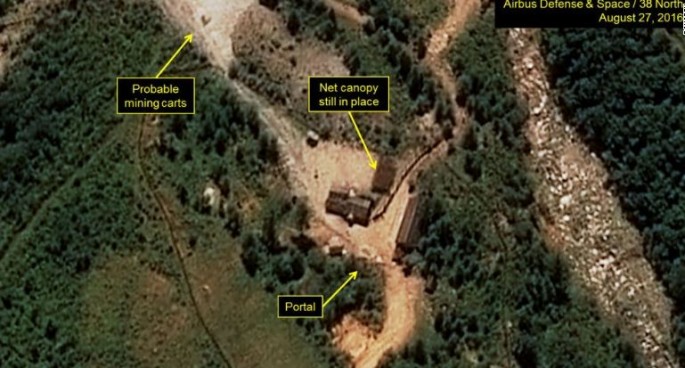China quickly reacted to U.S. calls it do more to curb the progress of North Korea's weapons of mass destruction programs by blaming the acceleration of the its ally's missile and nuclear weapons tests on the Americans.
China's Ministry of Foreign Affairs on Sept. 12 brushed aside comments by U.S. Secretary of Defense Ash Carter China bears "great responsibility" for North Korea's latest nuclear test on Sept. 9 where it claimed to have detonated a 10 kiloton weapon, its most powerful to date.
"The essence of the issue is the conflict between the DPRK and the US," said Hua Chunying, Chinese Foreign Ministry spokeswoman.
"The U.S. side should review developments of the issue, and carefully think about pragmatic and effective solutions."
Hua said Carter was "being too modest" in his remarks laying the blame on China and instead urged the U.S. to "take on its due responsibility."
"I think the U.S. should go over the process of the development of the nuclear issue and earnestly work on a tangible and effective resolution," said Hua.
She cited a Chinese saying that "Whoever started the trouble should end it," a restatement of Beijing's official line that the present crisis on the Korean peninsula was ignited by South Korea's request the U.S. help protect it from the north's ballistic missiles (against which it has no defense), and the U.S.' agreeing to deploy its most advanced anti-ballistic missile (ABM) to do so.
This U.S. ABM system called THAAD or the Terminal High Altitude Terminal Defense System is designed to shoot down short, medium, and intermediate range ballistic missiles such as those being tested by North Korea. The system has been proven in combat in the Middle East.
Those critical of China's continued kid glove treatment of North Korea and its volatile leader, Kim Jong-un, also claim China hasn't done enough to hurt the north more by increasing economic pressure on its ally as punishment for its nuclear tests.
China is publicly against this move, fearing that cutting off the rail and road links across the Yalu River that keep the north's crippled economy alive would lead to the collapse of the Kim regime and to the Chinese nightmare of South Korea conquering the north.
China's calculation is it would be better to keep a recalcitrant Kim than to have the U.S. and its sophisticated weapons separated from it only by the narrow Yalu River.
North Korea, however, boasted it now can conduct its foreign affairs as befits an independent state and a nuclear weapons state.



























